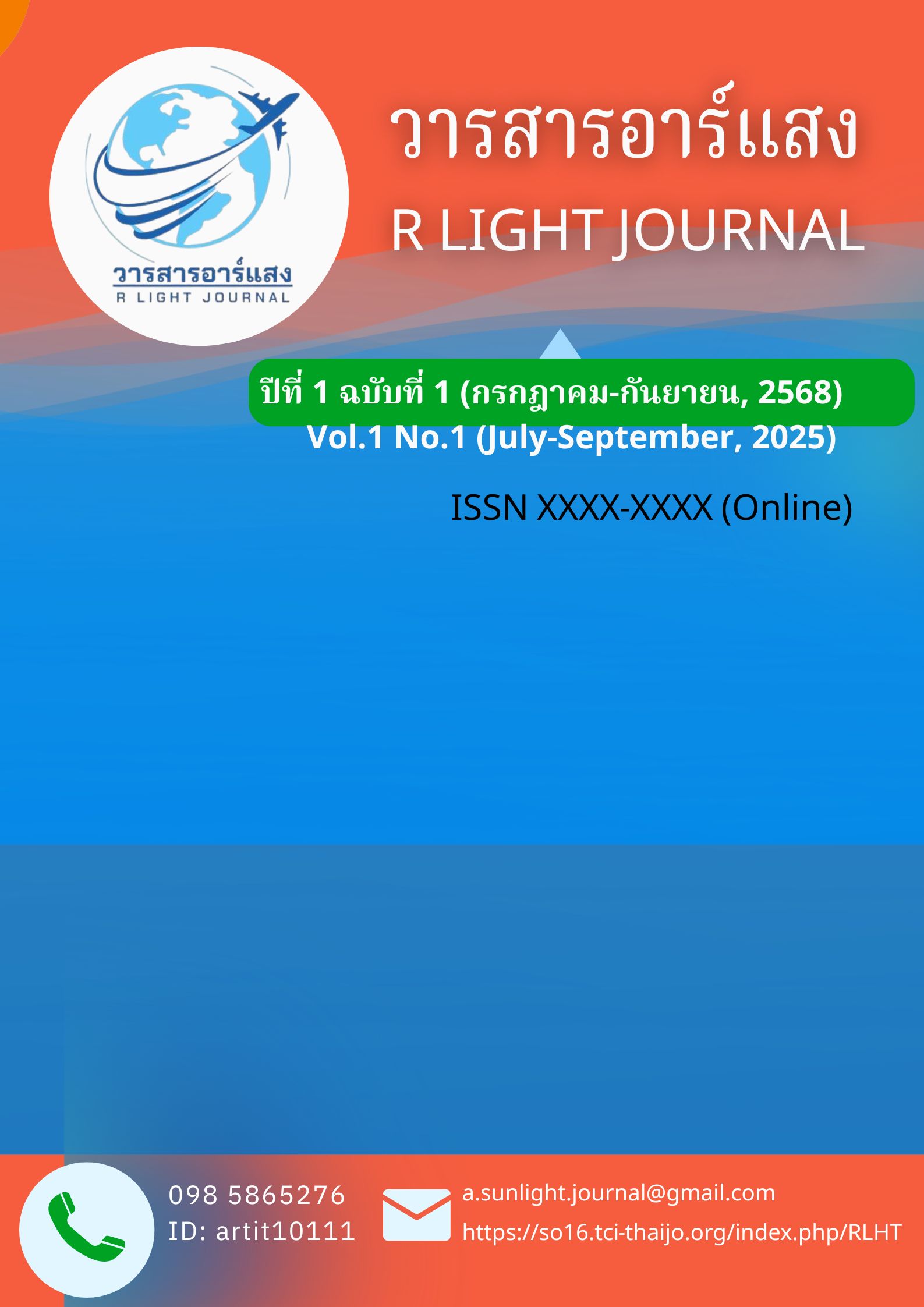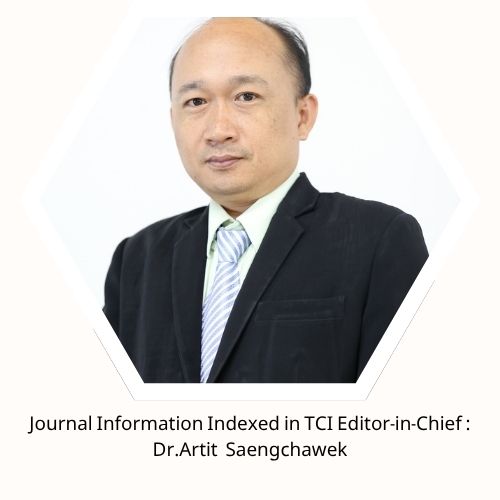SOCIAL DEVELOPMENT THROUGH THE FOUR PRINCIPLES OF BHAVANA FOR HOLISTIC WELL-BEING
Keywords:
Social Development, Fourfold Bhāvanā, Holistic Well-being, Buddhist Principles, Quality of LifeAbstract
This article aims to explore the application of the Fourfold Bhāvanā—physical development (kāya-bhāvanā), moral cultivation (sīla-bhāvanā), mental development (citta-bhāvanā), and wisdom development (paññā-bhāvanā)—as a framework for social development grounded in Buddhist principles. These four dimensions of training contribute to holistic well-being by promoting balanced development in physical, emotional, ethical, and intellectual aspects at both the individual and community levels. The study finds that the Fourfold Bhāvanā has significant potential in enhancing social cohesion, public-mindedness, and quality of life, especially when integrated into community-based programs. However, challenges remain in terms of public awareness, structural readiness, and the measurement of spiritual and mental outcomes. This article proposes strategies for the practical implementation of the Fourfold Bhāvanā in social development initiatives by integrating it with education, religion, culture, and local participatory processes, aiming to promote sustainable and holistic social transformation.
References
ชิสา, ก., & กันยาวิริยะ, ศ. (2024). หลักภาวนา 4 เพื่อการพัฒนาคุณภาพชีวิต. เสฏฐวิทย์ปริทรรศน์, 4(1), 55–63. https://so12.tci-thaijo.org/index.php/stw/article/view/1056
ชิสา, ก., & เมธา, ห. (2565). การศึกษาเชิงวิเคราะห์หลักภาวนา 4 ตามหลักพุทธปรัชญาเถรวาท. พุทธมัคค์, 7(2).
https://so01.tci-thaijo.org/index.php/bdm/article/view/259186
ณัฐวุฒิ กลิ่นกระบี่, & พระมหาบุญศรี อคฺคปญฺโญ. (2566). การใช้หลักภาวนา 4 ของประชาชนเขตหนองแขม
กรุงเทพมหานคร. วารสารวิชาการปัญญาภิวัฒน์, 15(1), 23–34.
ณิชาพัฒน์ คำดี. (2565). หลักภาวนา 4 กับการส่งเสริมการปฏิบัติงานของบุคลากรยุคชีวิตวิถีใหม่. วารสารสห
วิทยาการนวัตกรรมปริทรรศน์. https://so04.tci-thaijo.org/index.php/jidir/article/view/257850
ธรรมสาโรรัชต์, ว. (2566). การพัฒนาคุณภาพชีวิตแบบองค์รวมตามหลักภาวนา 4 ของผู้สูงอายุ. วารสารวิจัยทาง
พระพุทธศาสนา, 9(1), 112–123.
นฤมล, จ., พระครูปลัดสมบูรณ์ อนาลโย, & สิริกาญจนา, พ. (2022). The holistic well being concepts in
relation to quality of life. ABAC ODI Journal Vision. Action. Outcome, 16.
https://doi.org/10.14456/abacodijournal.2022.16
ประเวศ วะสี. (2550). สุขภาวะองค์รวมแนวพุทธ. มูลนิธิสาธารณสุขแห่งชาติ.
พระธรรมปิฎก (ป.อ. ปยุตโต). (2547). พจนานุกรมพุทธศาสตร์ ฉบับประมวลธรรม (พิมพ์ครั้งที่ 11). มหามกุฏ
ราชวิทยาลัย.
วรจินตนาลักษณ์, ร., ภัทรธรรมคุณ, พ., & ชัยสุข, ป. (2563). การศึกษาสุขภาวะยุคไทยแลนด์ 4.0 ตามหลัก
ภาวนา 4 ของนิสิต มหาวิทยาลัยมหาจุฬาลงกรณราชวิทยาลัย. วารสารการวิจัยการบริหารการพัฒนา, 10(1), 121–133. https://so01.tci-thaijo.org/index.php/JDAR/article/view/244320
วีนัส ธรรมสาโรรัชต์. (2566). การพัฒนาคุณภาพชีวิตผู้สูงอายุโดยใช้หลักภาวนา 4. วารสารพุทธปรัชญาและ
จิตวิทยา, 12(1), 201–215.
สานุ มหัทธนาดุลย์, & สริตา มหัทธนาดุลย์. (2565). Holistic well-beings promotion for balanced way
of life according to Buddhist psychology. วารสารวิจัยสังคมศาสตร์และวัฒนธรรม, 18(1), 67–80.
Phoowachanathipong, K., & Buasiri, A. (2020). Buddhist holistic well-being of urban community
in 4.0 era: Participating process of community of villages-temples-schools. Journal of Buddhist Anthropology, 5(11), 403–419. https://so04.tci-thaijo.org/index.php/JSBA/article/ view/246514
Phrakhrusripariyativitan, M. T. V. (2563). รูปแบบการพัฒนาศักยภาพของแรงงานตามหลักภาวนา 4
เพื่อส่งเสริมประชาคมอาเซียนให้เข้มแข็งในจังหวัดสมุทรสาคร. วารสาร มจร พุทธปัญญาปริทรรศน์. https://so03.tci-thaijo.org/index.php/jmbr/article/view/151427
Downloads
Published
How to Cite
Issue
Section
License
License Articles in this journal are copyrighted by the x may be read and used for academic purposes, such as teaching, research, or citation, with proper credit given to the author and the journal.use or modification of the articles is prohibited without permission.
statements expressed in the articles are solely the opinions of the authors.
authors are fully responsible for the content and accuracy of their articles.
other reuse or republication requires permission from the journal."







